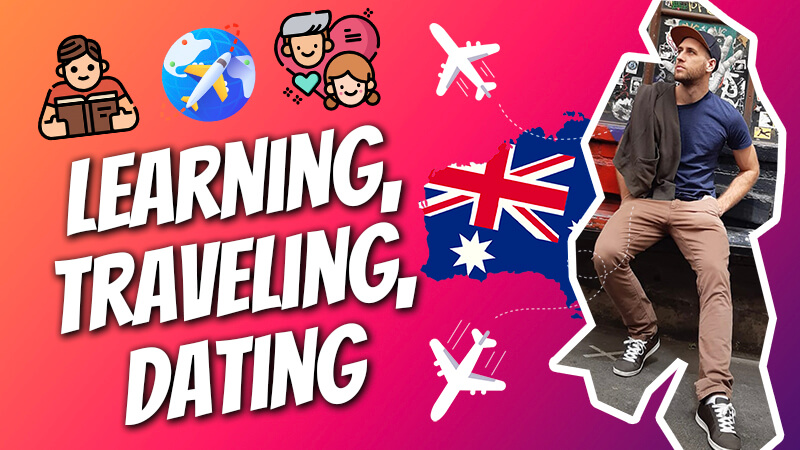Ep069: Like A Native – Pete’s Place = Pete’s
In this episode of Like A Native I teach you guys how native speakers of English often drop words like, place, home, house after a possessive noun or name + ‘s.
Ep069: Like a native – Pete’s [place] = Pete’s
Hey guys! Welcome tot his episode of Aussie English. I’m going to rename these I think now. So, there’s going to be some of these episodes where I’m teaching you things that aren’t necessarily the exact pronunciation of a word and they aren’t exactly the most interesting expressions. Although, you could argue that they are expressions to some degree. But I’m going to rename them “Like A Native”. So, these sorts of phrases and words that you would say like a native, I’m going to make these episodes so that you guys, if you want to speak like a native, or if you just want to understand natives, I’ll teach you things that they say and do often as natives.
So, today’s episode is going to be how natives will often reduce ah… phrases along the lines of, “Pete’s place”, to just “Pete’s”, or “His place” to “his”, “My place” to “Mine”, “Your place” to “Yours”, “Jane’s place” to “Jane’s”. Any time we’re talking about a person’s home, a person’s house, a person’s place of residence, there, there home, etc, we will often just refer to it as the person’s. So, we won’t actually say the noun afterwards. We won’t say words like “house”, “home” or “place” after the person’s name, or after the possessive pronoun, we’ll just say the possessive pronoun such as “mine”, “Yours”, “his”, “Hers”, “Ours”, “Theirs” or we’ll just say there name plus an “‘s”. So, “Pete’s”, “Jane’s”, “George’s”, um… “Geoffrey’s”, etc.
So, what are some examples guys? So, for instance, I could say, “I’m going to Pete’s place for lunch”. “I’m going to Pete’s place for lunch”. So, it’s like I’m going to his house for lunch, his home for lunch, where he lives. I’m going there for lunch. You’ll often hear this change to just, “I’m going to Pete’s for lunch”. So, you just drop the place, home, house, whatever it is, you just say “Pete’s”. So, the “Pete” with an “’s”. “Pete’s for lunch”. “I’m going to Pete’s for lunch”.
“I might head to Pete’s place later”. So, this would become, “I might head to Pete’s later”.
“Kids you’re going to Grandma and Grandpa’s house this weekend.” and often you’ll just drop that “house” and say, “Kid’s you’re going to grandma and grandpa’s this weekend.”
We’re staying at his home for the night.” You’ll drop “Home” and you’ll say. ”We’re staying at his for the night.”
Or, the last example could be, “He’s going to her place later.” And you could just say, “He’s going to hers later”.
So, yeah. If you’re using someone’s name, so “Peter’s place”, you’ll just drop the “place” and say “Peter’s”. However, if you’re using pronouns such as “my” or “Mine”, “your” or “Yours” you have to switch between the possessive determiner such as, “my, your, his, her, our, their” and use the possessive pronoun such as, “mine, yours, his, hers, ours, theirs”. Don’t get too bogged down in the grammar here guys. But I did want to mention it in case you wanted to go away and look this up. And when I say the… the phrase “bogged down”, “to be bogged”. “B-O-G-G-E-D”, “Bogged”. “Bogged down”, “To be bogged”, it means to get your car stuck in the mud. So, if you’re driving your car and it gets its wheels caught up in the mud, or the sand, any kind of substrate or dirt, soil, sand, mud, whatever it is, if your car gets stuck that’s “getting bogged”. And, “bogged down” is like it’s sinking into the mud. And if I say that metaphorically with regards to something like “Getting bogged down in grammar”, or “Getting bogged down in the details”, it means getting stuck, or thinking about too much, thinking about in detail, really focusing on the grammar, focusing on these details. So, when I say, “Don’t get bogged down”, it means don’t focus too much, don’t… don’t get stuck on, don’t worry too much about the details or the grammar here for this example.
Anyway, let’s do a little switching substitution drill where I’m going to say, for example, the first sentence, “Pete’s heading to my place”, “Pete’s heading to my place”, and I want you to try and change the sentence to use the possessive pronoun where you would change the sentence to “Pete’s heading to mine”. Instead of “Pete’s heading to my place” you say, “Pete’s heading to mine”. So listen and repeat after me.
Pete’s heading to my place.
Pete’s heading to mine.
Pete’s heading to your place.
Pete’s heading to yours.
Pete’s heading to his place.
Pete’s heading to his.
Pete’s heading to her place.
Pete’s heading to hers.
Pete’s heading to our place.
Pete’s heading to ours.
Pete’s heading to their place.
Pete’s heading to theirs.
Tonight, Jane’s coming to my place.
Tonight, Jane’s coming to mine.
Tonight, Jane’s coming to your place.
Tonight, Jane’s coming to yours.
Tonight, Jane’s coming to his place.
Tonight, Jane’s coming to his.
Tonight, Jane’s coming to her place.
Tonight, Jane’s coming to hers.
Tonight, Jane’s coming to our place.
Tonight, Jane’s coming to ours.
Tonight, Jane’s coming to their place.
Tonight, Jane’s coming to theirs.
So, we’ll just do a few more with names and then the “’s” and then we’ll finish up guys.
I’m going to Pete’s place for lunch.
I’m going to Pete’s for lunch.
I’m going to Jane’s place this evening.
I’m going to Jane’s this evening.
I’m going to John’s place this arvo.
I’m going to John’s this arvo.
So, that was the episode for today guys. I hope you’re enjoying it, I hope this is helping you guys learn to understand spoken English as spoken by natives, and if you are interested in speaking like a native I hope it’s really helping with that as well. Anyway, [I’m] trying to keep these episodes brief so you can listen multiple times without listening to a lot of intro and outro speech, so I’ll cut it there and chat to you guys soon. All the best!
Here's what you get when you sign up!
- Read while you listen using the Premium Podcast player.
- Understand every word in every episode.
- Download all PDF transcripts and MP3s for 600+ episodes.
- Get access to bonus member-only episodes.












Responses